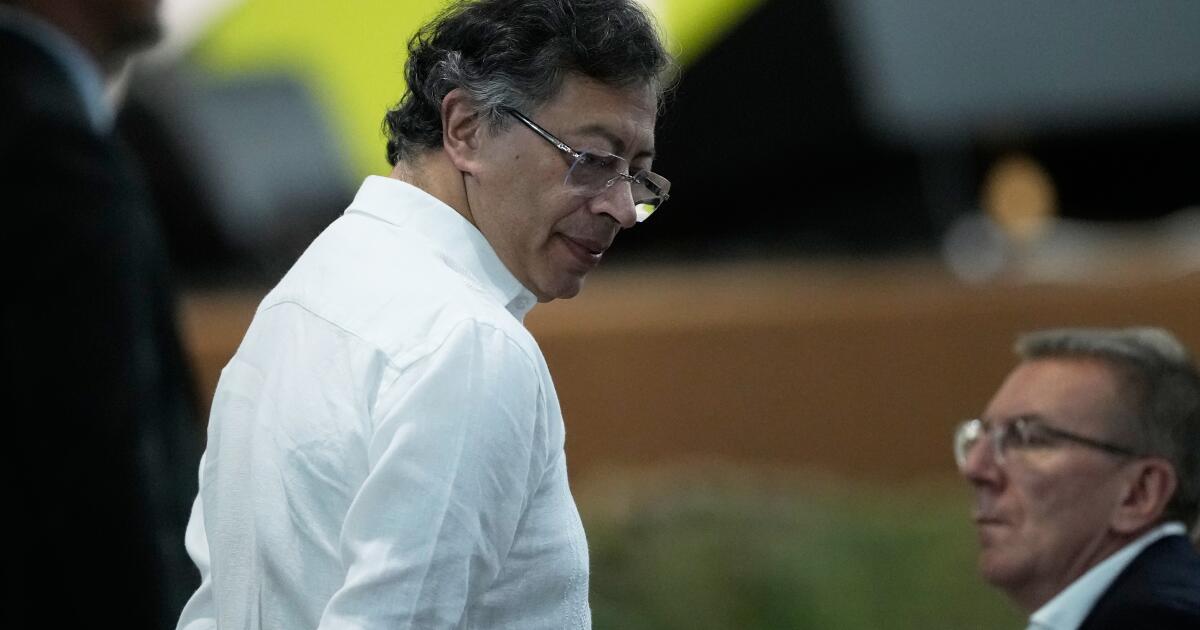UPDATE: A crucial summit in Santa Marta, Colombia is underway as representatives from European, Latin American, and Caribbean nations convene to strengthen ties amid escalating tensions over recent U.S. military strikes. These operations have reportedly killed over 60 people since September, prompting fierce criticism from Colombian President Gustavo Petro and raising urgent questions about the summit’s relevance.
The two-day summit, which began on October 15, 2023, aims to produce a declaration focused on renewable energy, food security, and technological cooperation. However, the backdrop of the U.S. strikes on suspected drug-carrying vessels looms large over the discussions. In his opening remarks, Petro condemned the military actions as “extrajudicial executions,” highlighting the loss of innocent lives, including Colombian citizens.
Petro’s pointed question, “What are we doing with this meeting in today’s world amidst missiles?” reflects a growing frustration among leaders regarding U.S. foreign policy. He described the summit as a potential “beacon of light amidst the barbarity,” emphasizing the need for unity in facing global crises.
The absence of significant figures like European Commission President Ursula von der Leyen and German Chancellor Friedrich Merz has raised eyebrows, with Colombian officials attributing their absence to scheduling conflicts with the upcoming COP30 climate conference in Brazil. Nevertheless, the presence of leaders such as Spanish Prime Minister Pedro Sánchez and Brazilian President Luiz Inácio Lula da Silva underlines the summit’s importance.
Notably, Lula’s attendance, despite Brazil hosting the climate summit, signals regional solidarity, especially regarding the situation in Venezuela. Brazilian officials anticipate that the Venezuelan delegation will address the U.S. strikes, and discussions are expected to focus on fostering peace in the region.
European Council President António Costa emphasized cooperation over division in his remarks, stating, “We choose dialogue, not division; we choose cooperation, not confrontation.” He avoided directly addressing the U.S. military actions but underscored the need for multilateral solutions in today’s complex geopolitical landscape.
As the summit progresses, the impact of U.S. military interventions in the Caribbean will likely dominate discussions. An investigation by the Associated Press has raised concerns that many of the casualties from the U.S. strikes were not drug traffickers but impoverished fishermen and civilians.
This summit marks a critical moment for regional leaders to address pressing issues without direct U.S. involvement, potentially allowing for candid dialogue about military deployment and its effects on local communities. Experts suggest that it could be the last significant multilateral summit in the region until 2025, following the postponement of the Summit of the Americas.
With tensions high and the stakes even higher, leaders are poised to confront the consequences of U.S. actions while seeking collaborative paths forward. The discussions in Santa Marta are not just about diplomatic niceties; they are about the lives of people affected by geopolitics and the urgent need for a unified regional response.
As this story develops, stay tuned for updates on critical agreements and negotiations stemming from this pivotal summit.





































































